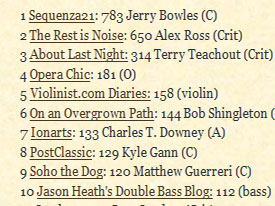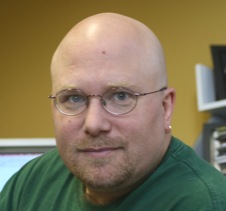Who’s going to see Elmer Gantry at Montclair later this week? Want to write a review for us? No money but an incredible amount of love, peace and understanding (and what’s so funny about that?) and the next 10 Mozart CDs companies send me by mistake.
Marvin is doing the world premiere of the Alan Hovhaness concerto Shambala, for violin, sitar and orchestra, originally composed for Yehudi Menuhin and Ravi Shankar, on his Classical Discoveries radio program on January 30 during the 9 am EST hour. As usual, you can listen to it on the web at WPRB in Princeton.
The broadcast marks the February 14th release of the OgreOgress DualDisc comprising three Hovhaness works, each featuring violinist/violist Christina Fong. Both Shambala and Janabar (1950) appear in world-premiere recordings, while the concerto Talin was last recorded in its original viola & strings format in 1957.
I had a real thing about Sinclair Lewis when I was 10 or 11 years old. Read Arrowsmith, Dodsworth, Elmer Gantry, Babbitt, Main Street back to back. Lewis created characters that were not so much flesh and blood as archetypes of American mendacity. I soon moved on to Hemingway and Faulkner but Lewis–who was hardly in that league as a writer–was my first real exposure to concepts like satire and irony and skepticism and, for better or worse, far more influential in shaping my views of the world.

 Gavin Borchert, composer and the Seattle Weekly‘s classical music critic, has an
Gavin Borchert, composer and the Seattle Weekly‘s classical music critic, has an 
 I was late getting to the Times today and just noticed that Andrew Imbrie has died. Joshua Kosman’s obituary is
I was late getting to the Times today and just noticed that Andrew Imbrie has died. Joshua Kosman’s obituary is